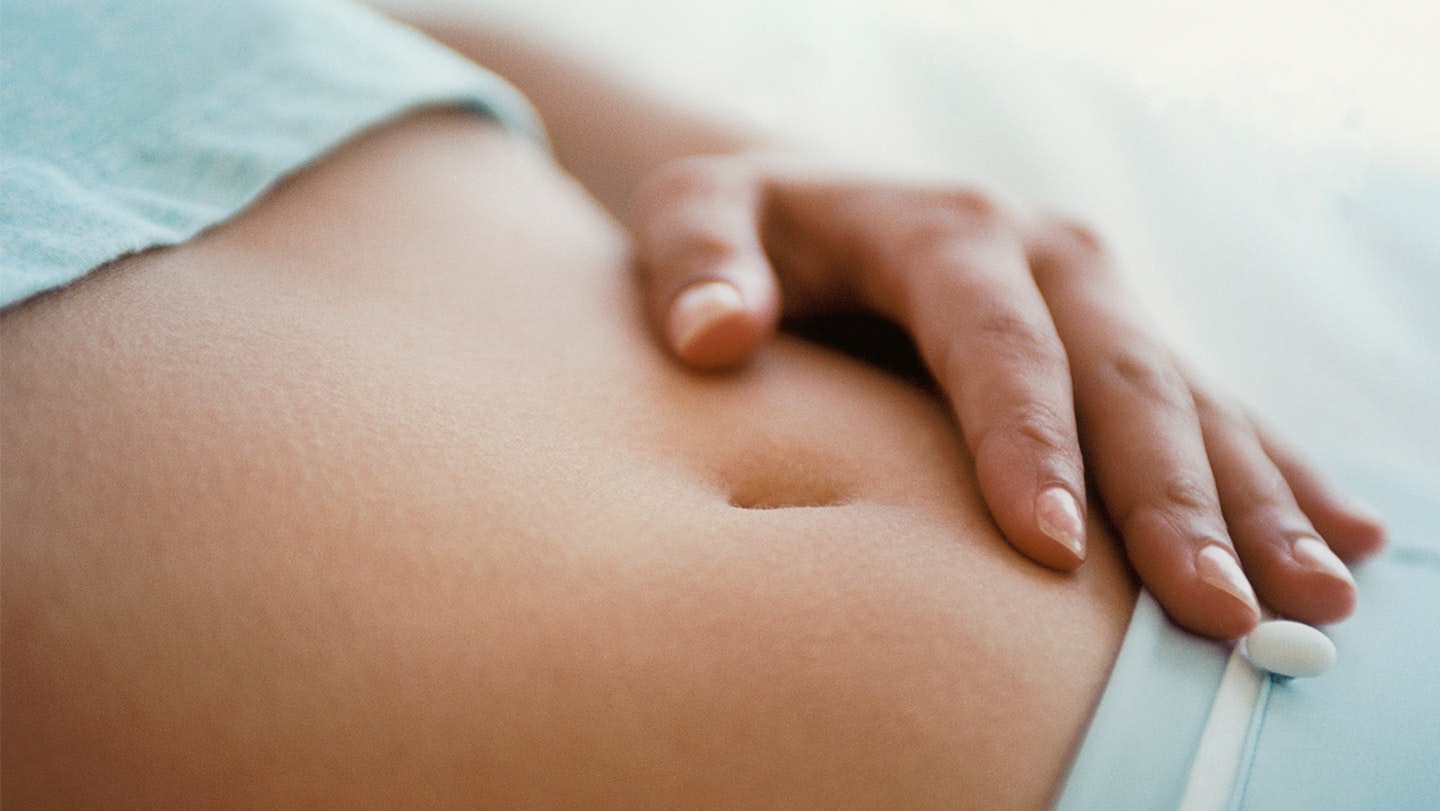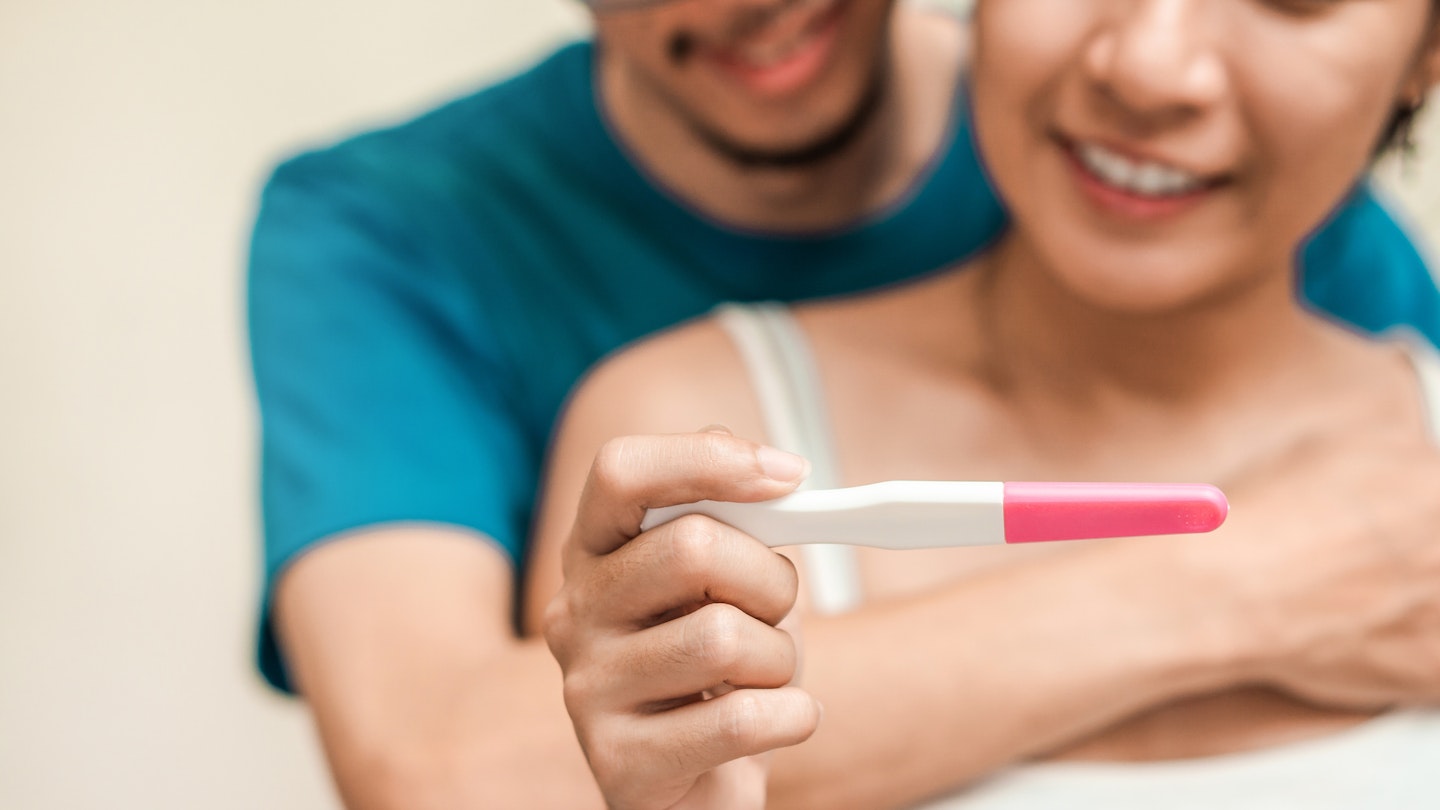Whether you've had a positive pregnancy test result or you've noticed those first early pregnancy symptoms, here's everything you can expect at 1 month pregnant, from changes in your own body, to how your baby is developing in these first few weeks.
We've also included a helpful checklist of what to do at this exciting stage of your pregnancy journey.
One month pregnant symptoms
Missed period
One of the first major signs of pregnancy in the first month is missing your period if you have a regular menstrual cycle.
Sore nipples
Many women report sore or very tingly nipples as the first sign of pregnancy. It's down to the increased blood supply to your breasts and it will disappear as your body gets used to the pregnancy hormones.
Fatigue
Extreme tiredness and fatigue are a common early pregnancy symptom. Try to sleep now as much as you can!
Nausea
If you've started feeling nauseous and even actually vomited, it's likely you're experiencing what's known as morning sickness. Despite the name, you'll probably find that this can happen at any time of the day.
Emotional rollercoaster
During pregnancy, you'll experience an emotional rollercoaster from feeling glum and frustrated to jumping with joy.
Cramping and bloating
At around 4 weeks nobody else will notice any physical changes but you'll probably be feeling quite bloated, you may even experience cramping and belly pains. Your body is making extra blood, you have more fluid and your hormonal activity will likely have you in that ‘I feel bigger’ headspace anyway, a bit like it does sometimes just before a period.
A bit of spotting
As the implantation process begins, you may notice a bit of bleeding. To prepare for the early stages of your baby's growth and development, the placenta will also produce oestrogen, progesterone, and human chorionic gonadotropin, which is referred to as the pregnancy hormone.
Baby development at 1 month pregnant
Egg into an embryo: When you get your late period, your body sheds its uterine lining and prepares a new one for the egg. One of your eggs will develop and ovulate.
Fertilising the egg: It takes up to three days for the sperm to meet up with your egg. Once the egg is in place, the sperm will race towards your egg. As soon as one sperm penetrates the egg's lining, your egg is now fertilised.
You now have an embryo: Your embryo will now go down the fallopian tube and grow into a ball about four days after conception. The embryo will move around until it finds its perfect spot to take base in the lining.An amniotic sac will form around this fertilised egg, and your placenta and the umbilical cord are also forming.
Your baby is microscopic at this point, but, three cell layers are beginning to form.
1.) The ectoderm layer will be your baby's nervous system, hair, and skin.
2.) The endoderm layer, will develop your baby's gastrointestinal tract, liver, pancreas, and thyroid.
3.) The mesoderm layer will develop into your baby's skeleton, connective tissue, blood system, urogenital system, and muscles.
How big is your baby when you're 1 month pregnant?
By 1 month your baby will only be about 6 or 7 millimetres in size, about the size of a grain of rice!
Changes to your body at 1 month pregnant
At this point in your pregnancy, it's unlikely that you will notice any physical changes to your body, despite how much is going on inside.

How far along are you at 1 month pregnant?
We appreciate it can be a bit confusing working out how far along you are as the weeks of pregnancy don't fit into months but one month of pregnancy encompasses weeks one to four.
At one month pregnant, you are at the beginning of the first trimester. The three trimesters are broken into the following:
First trimester: weeks 1 to 12
Second trimester: weeks 13 to 27
Third trimester: weeks 28 to week 40+
Checklist at 1 month pregnant
• Figuring out your due date
This is taken as 40 weeks from the first day of your last period. The doctor will work this out for you when you go to confirm the pregnancy but alternatively, you can use our due date calculator to find out earlier.
• Sleep
As the months pass you may have trouble sleeping, let alone when your baby arrives! So get as much shut-eye now as you can.
• Health
Start making a plan for eating well and exercising during pregnancy. If you haven't already, kick dangerous habits like smoking or drinking alcohol.
• Start taking a prenatal vitamin
It's actually advised to begin taking a prenatal vitamin a few months before you start trying for a baby, so if you haven't started taking any vitamins yet it's a good time to start. Be sure it has at least 400 micrograms of folic acid.
Lorna White is a Senior Digital Writer and has written for Mother&Baby since 2020. She has a keen interest in a range of topics, from potty training and nutrition to baby names and maternity fashion.
